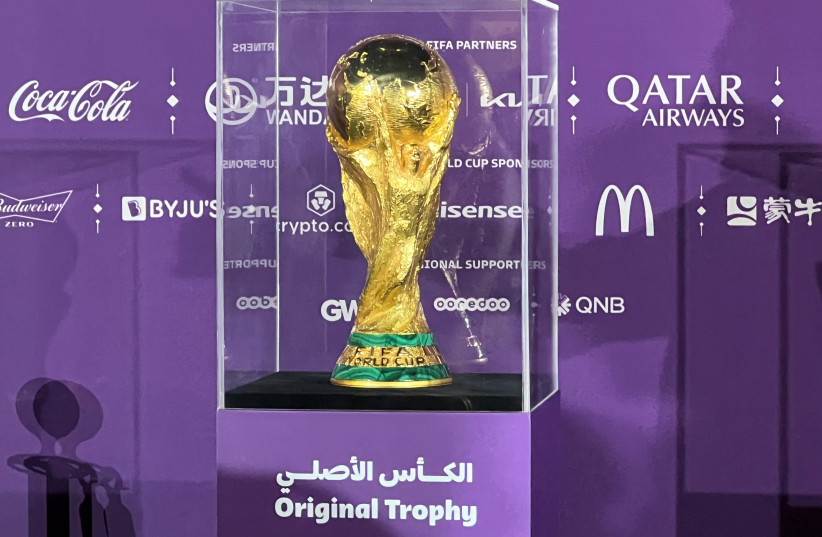Israeli rabbinical organization Tzohar is in negotiations to provide supervision for kosher food at the World Cup in Qatar in November, Tzohar chairman Rabbi David Stav confirmed on Thursday.
Kosher World Cup
Israel, FIFA and Qatar finalized an arrangement on Thursday by which Israelis can attend the World Cup, even though Israel and Qatar do not have diplomatic relations.
Rabbi Marc Schneier, of the Hamptons Synagogue in New York and president of The Foundation for Ethnic Understanding, has been serving as Qatar’s adviser on how to accommodate Jewish visitors during the World Cup.
He accepted the voluntary position on the condition that Qatar states publicly that Israelis would be permitted to attend. FIFA’s rules also require that “any visa procedures must be applied in a non-discriminatory manner.”
Qatar confirmed Schneier’s role and the promise to provide kosher food in a statement released by its US Embassy in 2019. The statement also confirmed Israeli attendance, noting that Israeli athletes had been permitted to participate in several sporting events in Qatar in the past, including gymnast Artem Dolgopyat in 2018, when he was an IDF soldier and before he won an Olympic gold medal.
Schneier said on Thursday that he is “beginning to facilitate kosher food” for the soccer mega-event, and that Tzohar and the US-based Orthodox Union are in the running to supervise the kashrut.

Stav said Tzohar is still negotiating the matter.
“We don’t know if the Qataris will allow Israeli kashrut supervisors to come,” he said. “We’re still examining it. Tzohar, as a body that wants to deal with kashrut for the Jewish people, wants to be involved in this.”
Schneier, who was in Qatar last month, was also in talks for direct flights from Tel Aviv to Doha for the World Cup.
The rabbi worked on the provision of a prayer room to serve as a synagogue for Jewish fans at the World Cup, which he plans to furnish with a Torah and prayer books. He hopes to host a Shabbat dinner in Doha on November 18, three days before the World Cup begins.
In addition, Schneier discussed the “safety, security and well-being of Israelis who are attending with a special admiral in charge of security for the World Cup. Security is a priority issue for them.”
The Qataris “have been very cooperative and could not be more welcoming,” Schneier said.
Israelis at the World Cup
According to the rabbi, 15,000 Israelis are projected to attend the World Cup.
Foreign Minister Yair Lapid, Defense Minister Benny Gantz and Culture and Sports Minister Chili Tropper announced on Thursday that Israelis will be able to obtain a visa to attend the World Cup using a special “fan ID,” which they will receive after buying a ticket online. The fan ID will also allow them to book hotel rooms.
“Sports have the power to cross continents and connect nations and countries,” Tropper said. “I am happy about the important diplomatic and sporting news... Many Israeli sports fans are happy today.”
Israeli attendance at the World Cup in Qatar “opens the gate for new, warm relations,” Lapid said.
Gantz called Qatar “a country of international importance that contributes to regional stability.”
Qatar regularly sends funds to Hamas-controlled Gaza, with Israel’s tacit permission.
Israel and Qatar established trade relations in 1996, after Israel made peace with Jordan, but Doha cut ties after Operation Cast Lead in 2009. Shimon Peres visited Doha twice, first as prime minister in 1996 and as president in 2007.
